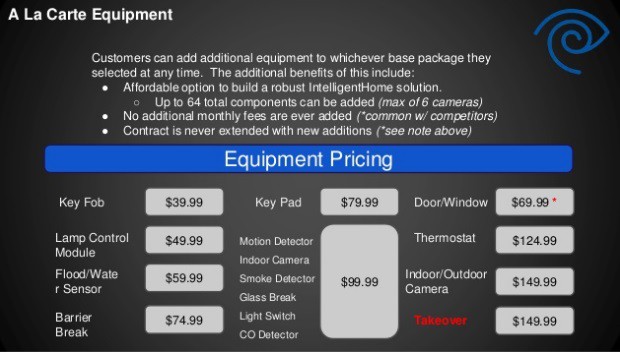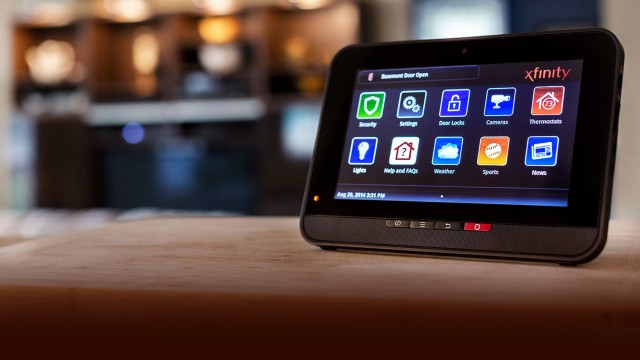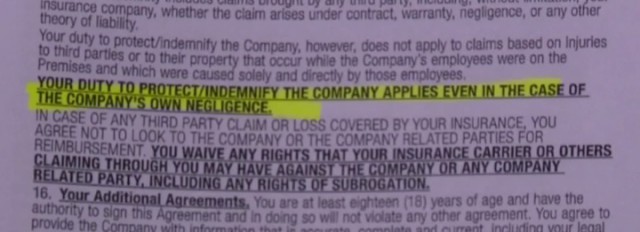 Charter Communications has notified customers of Time Warner Cable and Bright House Networks’ home security services that it intends to discontinue both services in February, leaving many customers with hundreds of dollars in equipment that will be rendered useless when the service closes down.
Charter Communications has notified customers of Time Warner Cable and Bright House Networks’ home security services that it intends to discontinue both services in February, leaving many customers with hundreds of dollars in equipment that will be rendered useless when the service closes down.
“At Spectrum, we continually evaluate our products to ensure we are bringing you superior, consistent and reliable service. We perform regular reviews of our services and as a result, effective February 5, 2020, we will no longer be providing or supporting Spectrum Home Security service.”
 Formerly known as Time Warner Cable IntelligentHome and Bright House Networks’ Home Security & Control, the two home security services are legacies of the two former cable companies acquired by Charter Communications. Charter showed no interest in marketing the security services under the Spectrum brand, although the company agreed to continue supporting existing customers until now. Top executives were reportedly disinterested in the prospect of selling home security products and services.
Formerly known as Time Warner Cable IntelligentHome and Bright House Networks’ Home Security & Control, the two home security services are legacies of the two former cable companies acquired by Charter Communications. Charter showed no interest in marketing the security services under the Spectrum brand, although the company agreed to continue supporting existing customers until now. Top executives were reportedly disinterested in the prospect of selling home security products and services.
The news has not been welcomed by customers, many who made substantial investments in optional alarm system add-ons that were purchased by customers. At least one spent over $1,200 bolstering the basic security system offered by the two cable companies with additional door contacts, motion detectors, smoke detectors, keypads, fobs, and other extra cost add-ons. That equipment, which normally supports the Zigbee standard, will be rendered inoperative in February because both companies locked the hardware to their specific cable systems, making it currently impossible to repurpose the equipment with another alarm system or service.
A DSL Reports reader is fuming:
All these devices are Zigbee based, made by a major player in the Zigbee devices game. Under normal circumstances, you would be able to take all your stuff and move it over to your own home automation solution (Samsung SmartThings, Wink, Hubitat to name a few). But nope, not Spectrum’s devices. Early on they were firmware coded to prevent them from being seen and usable within the normal universe of Zigbee devices. With a couple of exceptions Spectrum’s Zigbee devices will only see the Spectrum Zigbee universe. So essentially after Feb. 5, 2020 your house full of Zigbee devices will be useless.
The criminal part in this is that with literally a 10 minute fix and firmware to those devices BEFORE they shutter their service would open them to the universe of compatible Zigbee devices but you can take to the bank that Spectrum isn’t going to do it, otherwise they would have mentioned it with the announcement. All those hundreds of dollars (thousands in some cases) down the drain… how does that make you feel?
Those of you with Home Security should be demanding that Spectrum either buyback each and every device they will be orphaning OR they do the right thing and push a simple firmware update that allows the devices to play in the normal Zigbee universe of devices allowing you to make the decision as to which hub and ultimately service you subscribe to.
Spectrum instead has signed a deal with Abode, a competing provider, that is offering to rip existing Spectrum home security equipment out of subscriber homes and replace it with a new basic system starting at $179 a year. Add-ons will be offered at a 25% discount, but will still require customers to spend hundreds more to replace almost every alarm related sensor in their home. Would-be customers are also warned in the fine print free installation is only applicable for the basic Abode Alarm 8-piece alarm kit. Installation of additional devices or accessories will be at an additional cost, which is likely in the range of several hundred dollars for more elaborate systems.



 Subscribe
Subscribe A Cox Cable technician took his sweet time working on cable television service for the Nuzum family, spending almost two hours getting television service working but only took a few minutes to allegedly rifle through the Iowa family’s prescription medications.
A Cox Cable technician took his sweet time working on cable television service for the Nuzum family, spending almost two hours getting television service working but only took a few minutes to allegedly rifle through the Iowa family’s prescription medications. Mrs. Nuzum suspected something was wrong and checked the upstairs where she said Darrah was left briefly alone.
Mrs. Nuzum suspected something was wrong and checked the upstairs where she said Darrah was left briefly alone.

 If Time Warner does shutter the service, customers will likely be released from their contracts penalty-free, but they may also be stuck with useless equipment they can’t use with another alarm system.
If Time Warner does shutter the service, customers will likely be released from their contracts penalty-free, but they may also be stuck with useless equipment they can’t use with another alarm system. Charter Communications is one of only a few cable companies that have shown no interest in selling home security services (Cablevision is another). In 2013, it
Charter Communications is one of only a few cable companies that have shown no interest in selling home security services (Cablevision is another). In 2013, it  Comcast’s sweeping disclaimers of responsibility for failures or confusion over its home security system made it next to impossible for a Washington state judge to find the cable company or its contractor liable for an alleged system failure that allowed two men to break into a Kirkland home undetected and torture the family’s teenage son.
Comcast’s sweeping disclaimers of responsibility for failures or confusion over its home security system made it next to impossible for a Washington state judge to find the cable company or its contractor liable for an alleged system failure that allowed two men to break into a Kirkland home undetected and torture the family’s teenage son.
 “Comcast complied with the terms of its written contract and did not breach any of its contractual duties,” the judge said. “No claims can lie for breaches of any expressed or implied warranties that were effectively disclaimed in the written contract.”
“Comcast complied with the terms of its written contract and did not breach any of its contractual duties,” the judge said. “No claims can lie for breaches of any expressed or implied warranties that were effectively disclaimed in the written contract.”



